Time for an update on the wealthiest people in pro cycling. If you thought this meant Tadej Pogačar, Remco Evenepoel or Egan Bernal, think again because this is about the people rich enough to hire these stars. As usual the point isn’t to fawn at the wealth but a “follow the money” piece so you know where some of the money coming into the sport originates from.
In part one here we’ll look at the team owners and sponsors and next week, others in and around the sport…
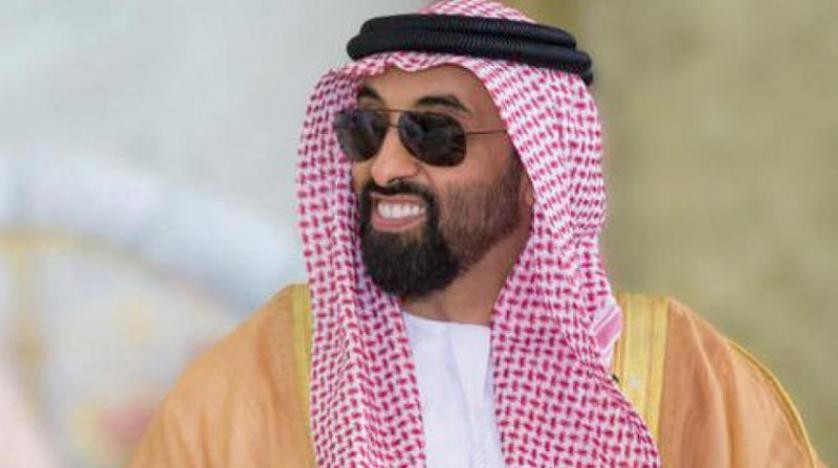
If you don’t know who Sheikh Tahnoun bin Zayed Al Nahyan is, you probably should. He’s first on our list as he’s surely the wealthiest person here, and probably by a long way. The sixth son of the founder of the United Arab Emirates, and brother of the UAE’s current President, he “TBZ” is the UAE’s national security advisor, think spy chief with a diplomatic role as well, often working back channels in the region and beyond. Look at the UAE team website and he’s not on the board. So is he involved in pro cycling? Let’s follow the money as not only does he have the security role, he’s got a big business portfolio too and many of his corporate jobs are linked to the UAE team. Look at the jersey and you can spot companies like FAB, a fast-growing bank that recently looked at taking over Britain’s venerable Standard Chartered bank; the big state-holding company ADQ; and G42, a technology company with a Covid vaccine sideline, and Sheikh Tahnoun chairs them all; he also chairs IHC which is a co-sponsor of the UAE-ADQ women’s team. We’re not done yet as he’s also chair of Chimera investments, a venture capital company… that owns Colnago which supplies the bikes to both teams. To use a US comparison to exaggerate things, it’d be like the head of the CIA also chairing JP Morgan, Exxon, Microsoft, Blackrock and Trek and putting these names on the front of a USA cycling jersey… but of course the UAE is a smaller place and run by its royals. Still you get the picture and his business interests make him a prime patron of the team.
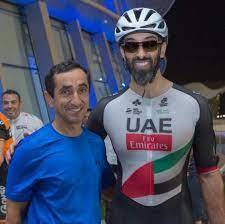
He’s a sportsman, a keen cyclist, triathlete and above all, has a long interest in Brazilian jujitsu. If you want to read more, the Financial Times has a free long read on him. You’re unlikely to spot him at the races but just the fact that he’s at the helm of so many sponsors qualifies him for the list and he’s a figure anyone on the planet should probably take note of. Other royals are behind the team too, the crown prince of Dubai Sheikh Hamdan bin Mohammed bin Rashid Al Maktou, aka “Fazza”, is also a cyclist but it’s “TBZ” who has so much of his business on the team jersey.
Next comes James “Jim” Ratcliffe, the owner of Ineos, a private petrochemicals company and you’re more likely to see him at a bike race, although he’s more often spotted at Formula 1 and football. Ratcliffe left a career at oil major BP to buy up unloved chemical factories and Ineos has grown so big that it’s moved into oil and gas exploitation to source the raw materials and energy for itself. It made Ratcliffe into Britain’s wealthiest man at one point although he’s in Monaco now. When Sky pulled out of cycling Ratcliffe bought the team having also owned a sailing team and backing an ice hockey team. His interest in sport is still growing, he’s behind French football club OGC Nice and is a sponsor and part owner of the Mercedes Formula 1 team – making him Lewis Hamilton’s boss if you like – and Ineos has branched out into other sports like the sponsored marathon record attempt. He’s in the running to buy Manchester United right now too. Why? Because he can and it must be fun to own all these teams but they help with dealmaking too, especially the Formula 1 connection which offers VIP opportunities galore. There are cross-connections with Dave Brailsford of the cycling team now working with the Nice football team. You do wonder for the cycling team though, it’s said Ratcliffe knows his cycling but all the same he wants the big wins and the relative dry spell in the Tour de France despite the biggest budget in the sport must frustrate. Which might explain the second round of attempts to sign Remco Evenepoel (they tried when Quickstep signed him the first time as well). Either way the team has an almost unlimited credit for now.
Australians love their sport and if there’s a bigger sports fan Down Under than Gerry Ryan, I’d like to hear it. He’s the man behind the Jayco-Al Ula team and has bankrolled the team ever since it launched as Greenedge. Ryan started out building camper vans and caravans and forty years on Jayco has been a big success that, with the auto industry having pulled out of manufacturing, is said to be Australia’s biggest vehicle manufacturer. But there are only so many caravans to sell and he’s become super-rich with the Walking With Dinosaurs show to which he owns the rights, and his media and entertainment business also stages other shows although he’s a multi-millionaire among some of the billionaires here. He’s involved in more business and he’s been a generous donor to other sports too like basketball as well as owning race horses. How long can he keep funding a pro team? On and on, we keep asking this question and he’s still there and while his businesses like Jayco, the Mitchelton winery or BikeExchange (his son’s venture) have appeared, it’s Ryan who’s really paid the bills. He stepped into help the team after it almost fell into curious hands in the Manuela incident but will be breathing a sigh of relief as the team signed a deal with the Saudi Arabian tourist project Al Ula.
Sheikh Nasser bin Hamad Al Khalifa of Bahrain, or “Prince Nasser” in short, is the man behind the Bahrain team. He’s 35 and attende Sandhurst, the British military school and the US Marine school in Quantico too. It’s said he loves nothing better than to spend hours in the saddle… with his feet in the stirrups as he’s a keen equestrian and has a stable of endurance horses. He’s also into other sports, especially triathlon where he’s done the Kona Ironman, indeed his Instagram account has pictures of him in army fatigues and triathlon suits alike and he’ behind the Bahrain 13 team which is trying to create a stable of the world’s best triathles. Bahrain is an island in between Qatar and Saudia Arabia and sits atop substantial oil reserves and like other nearby nations has is spending income from these resources on ways to diversify its economy. The country is a monarchy where the king appoints the government and chairs the judiciary and Prince Nasser, as one of the king’s seven sons, holds a certain authority, some of which he’s used to condemn dissent within the kingdom. Like “TBZ” above, he’s got a national security role. The state has seen uprisings and crackdowns and has the kind of human rights record that makes it hard to cheer for the team.
Now for Philip Hult, co-chairman of EF Education First in the US and son of Bertil Hult who founded the language school on the idea that it’s easier to learn a language through experiences than textbooks and via this became a billionaire. EF is not merely a sponsor of the team, it now own it. Bertil Hult started out with next to nothing while Philip and his brother Edward seem to have been groomed for the business. They’ve got plans for the team and having bought it, are now investing. They’ve signed Richard Carapaz and from the sounds of things others on the team are purring about their new contracts.
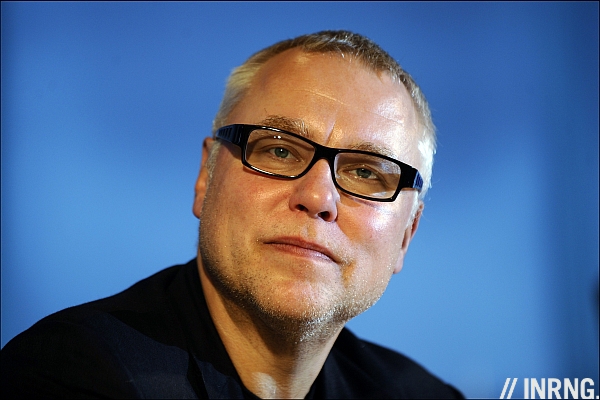
Who is the boss of the Soudal-Quickstep team? Patrick Lefevere might be most people’s answer but he’s the general manager, and of course the mouthpiece with his regular media interventions. But Zdeněk Bakala might be the right reply. Revisit the “wealthiest” feature here in 2012 there’s only name left a decade later and its him… the photo dates from back then too. As the Soudal-Quickstep website says, “At the end of 2010, Czech Businessman Mr. Zdenek Bakala took over the team, which is managed by a Board comprising eight members”. Bakala left Czechoslovakia before the Iron Curtain fell, the story goes he went to the US with only a handful of dollars and a sandwich in his pocket. He went into finance and then into minerals and has become a billionaire thanks to coal mines, steel plants and iron ore in the Czech republic and Ukraine. The Quickstep team’s changed sponsors over the years and he’s said to have helped top up the budget over the years and he’s had wider ambitions with the surprisingly clumsy attempts at breakaway leagues (a story told by Alex Duff in Le Fric) but despite this, he cuts a discreet figure in cycling. By contrast he’s a known person in Prague whose interests now extend into the media and philanthropy but he’s not fallen for the siren sounds of politics unlike other billionaires, and arguably done better for it. He’s a keen cyclist and said to ride his bike incognito along the shores of Lake Geneva where he’s resident.
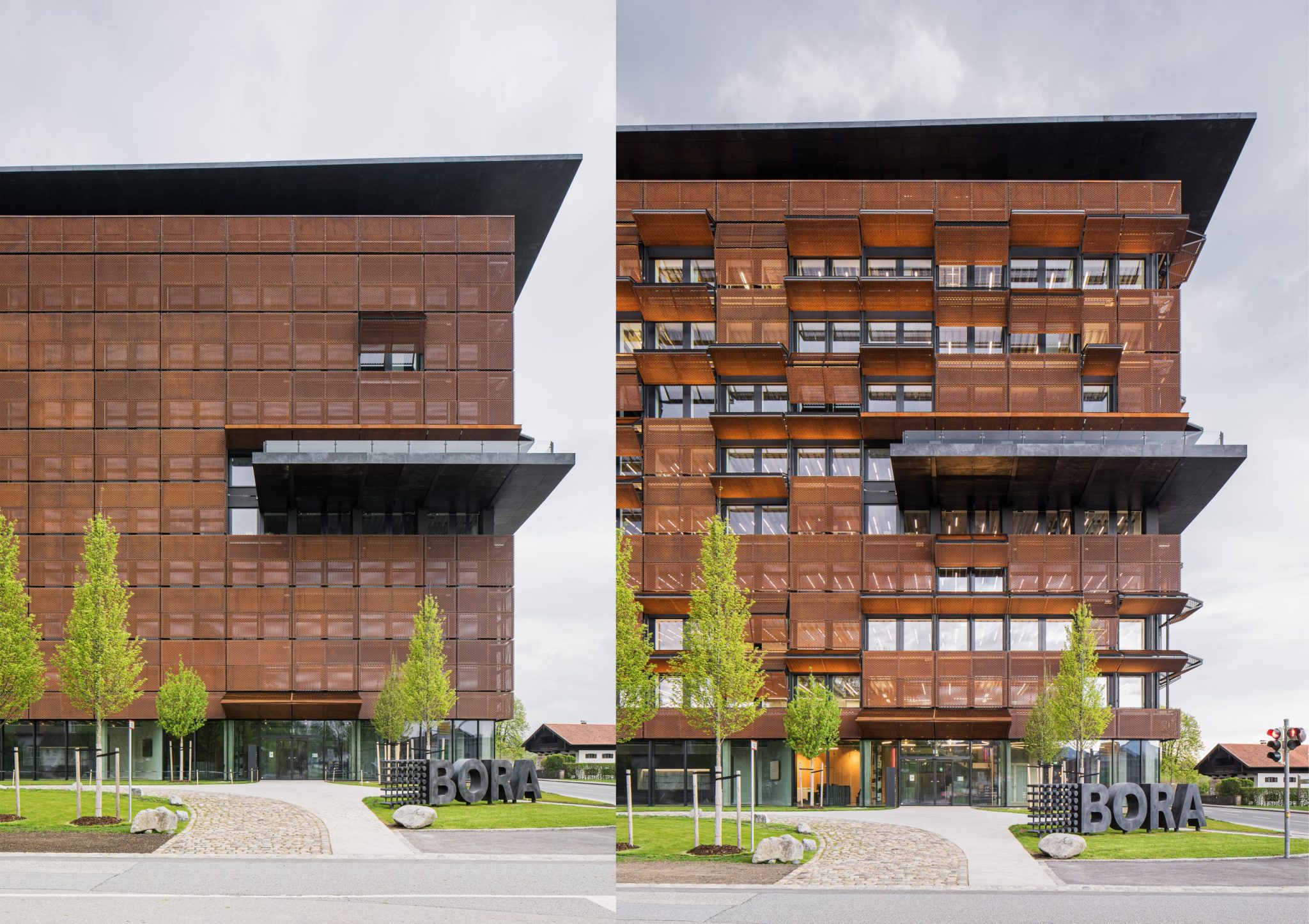
The bosses of corporate sponsors like, say, Movistar, Cofidis or Deceuninck may have a passing interest in the team but they’re not so involved, sponsorship is a corporate decision rather than an individual pet project. However there are some entrepreneurs keen on cycling, first is Willi Bruckbauer who founded Bora, the cooker extractor company and co-sponsor of Bora-hansgrohe. A carpenter and kitchen-fitter who enjoyed bike racing in his spare time, he didn’t like the typical extractor hoods above the hob and had one of those eureka moments to came up with the extractor system on the side of the hob. Bora’s grown and grown and for a while was an exemplar of a Bavarian Mittelstand company, a mid-size manufacturer but seems to be growing beyond this. It’s still in Bavaria and Bruckbauer is cycling-crazy, in a good way. The company’s swank new headquarters have a cobbled driveway up to the main entrance… laid by the Amis des Paris-Roubaix from the same “blue” stones as used in Northern France (pictured), a detail only Bruckbauer could have insisted on. Cycling and business are interwoven and the team is growing, the squad and the company’s profile was catapulted by signing Peter Sagan for 2017 and they now have a deep roster.
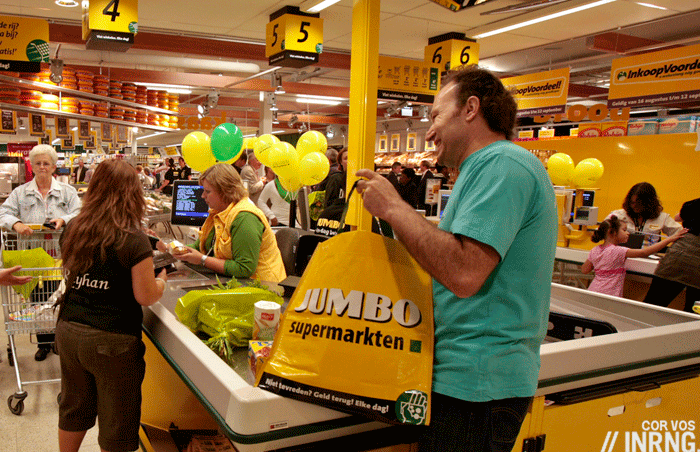
We could also add Frits van Eerd to the list, the boss of Jumbo supermarkets has been an influential sponsor at Jumbo-Visma, supplying credit to hire the likes of Tom Dumoulin and Wout van Aert, the latter just when the supermarket chain was expanding out of the Netherlands and into Belgium. But Van Eerd stepped down from the chief executive role following a tax investigation. There’s also been motor racing sponsorship and if the Van Eerd family aren’t big cyclists, they’ve been more than just transactional sponsors. Anyway Van Eerd says he’s stepped away pending the investigation and hopes to return.
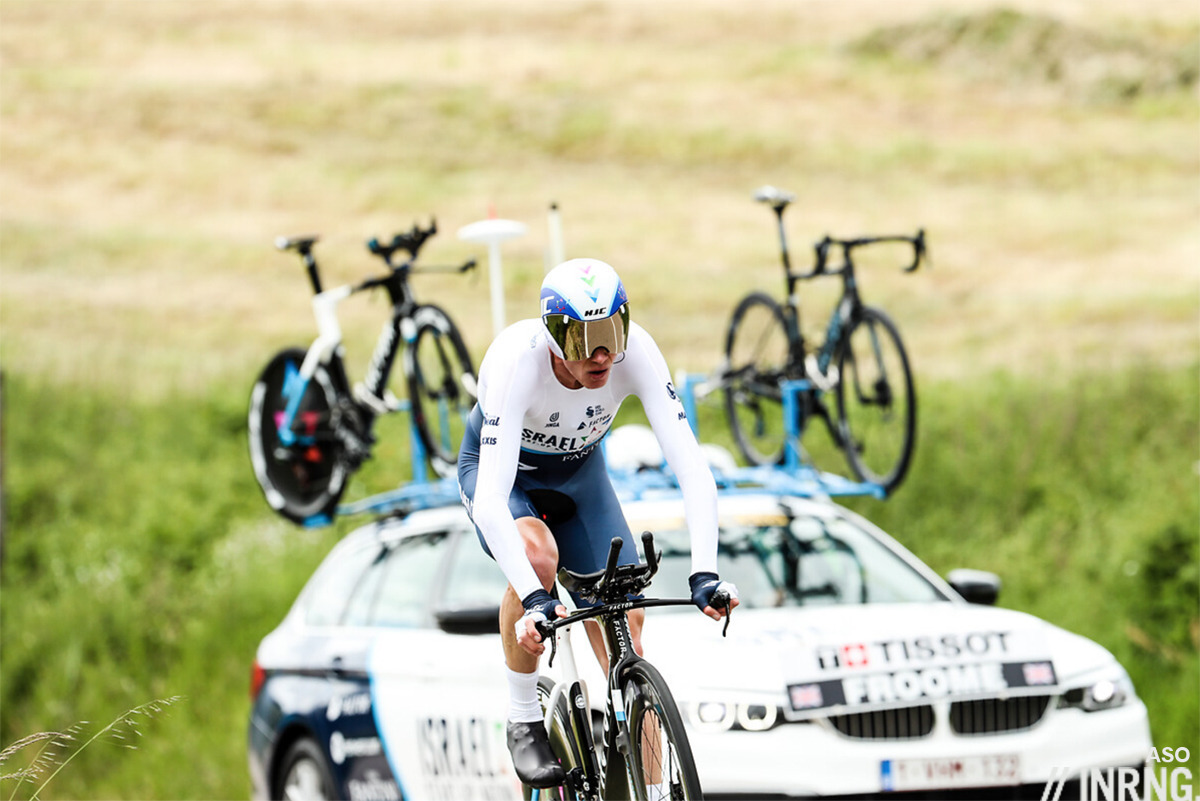
The Israel Start Up Nation team is backed by Israeli-Canadian real estate billionaire Sylvain Adams, a keen cyclist who has migrated to Israel and has been spending his fortune to promote the country. You might play Velogames and spend an imaginary 100 credits, Adams does it with his cash. He part-funded the Giro’s start in Tel Aviv and has hired Madonna to perform in the country. It’s sometimes odd that he gets to call his team “Israel”, is the team representing the country, the government, the people when other teams that sport a national identity are backed by the state itself? A mogul in Canadian real estate, when it comes to cycling Adams’ record is perhaps not so shrewd, he bought the Katusha licence to get into the World Tour but his well-funded team was relegated at the end of last year. But it depends on the point of view, he’s in for the long haul, wants the team back in the top flight and backs a women’s team in the World Tour too so he should be a fixture in the sport for time to come and just making it back into the World Tour is surely the start of his ambitions.
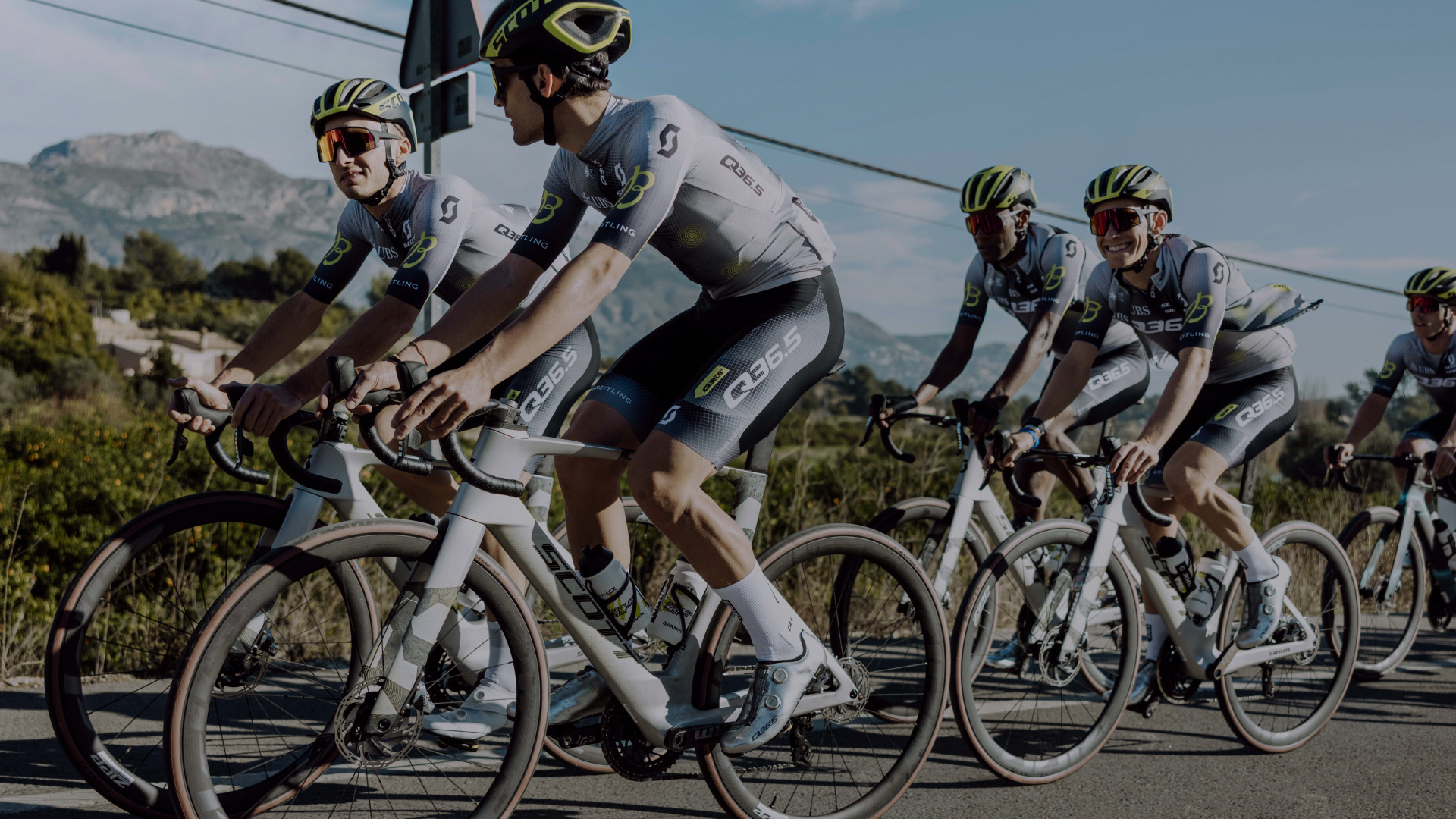
Staying in cycling’s second tier teams brings us to the Q36.5 team. A new outfit, it’s sponsored by a cycling clothing brand whose mission is to try and keep the body as close to the ideal temperature of 36.5°C. Now clothing sponsorship is valuable with brands like Rapha and Castelli bidding to back the top teams… but not valuable enough to pay for a whole team, especially Q36.5 which is a new brand first out for recognition, bumper sales can follow. Which is where Ivan Glasenberg comes in, a South African businessman and Swiss resident. He joined the commodity trader Glencore and rose to become its chief executive and grew the business, even expanding directly into mining. He bought more shares in Glencore, which paid out more dividends, which allowed him to buy more shares and so on. The company has not been without controversy although as Mr Glasenberg’s lawyers would surely point out, the allegations have been against others in the company and not him. This had prompted the stock price of Glencore to fall but it reached a record high late last year. Glasenberg’s stepped down from the role and among other things, got into road cycling after being a race walker in the past. He’s made an investment in Q36.5 which is an Italian company from Bolzano but with a retail presence in Switzerland, a flagship store in Zürich. In short the sales of Q36.5 can’t be enough to fund a pro team alone so Glasenberg’s helping to get the team and brand going.
At a reader suggestion, we ought to include Murray Bolton too, the man behind the Bolton Equities-Black Spoke team, where the black spoke is cycling theme on New Zealand’s history of playing sport in black kit. A New Zealand “rich lister”, Bolton started as an accountant, went into banking in the US before returning home to New Zealand and venturing into private equity where he now owns and runs Bolton Equities, among other things including a wildlife park. It’s with Bolton that he’s made his fortune and he’s been able to use a part of this for sport. He’s dabbled with the Auckland Blues rugby team, and now reportedly owns 40% of Major League Rugby, the sport’s franchise in the USA. Now comes cycling and there’s similarity to Gerry Ryan across the Tasman Sea as Bolton seems more a benefactor, he hasn’t promise to disrupt pro cycling, nor win the Tour de France in the next three years. Instead the team is much more about allowing the country’s cyclists to get a pathway from New Zealand to the pro peloton or Olympic success for the endurance track events.
Conclusion
Oil, gas and mining fund a lot teams, Gulf states back three teams now (UAE, Bahrain, Jayco-Al Ula) while billionaires who made their fortune in this area back three more (Ratcliffe, Bakala and Glasenberg) but this also reflects the money in these sectors.
Having done this feature several times in years past, what’s striking is just how many past names have vanished. Some have got out of the sport, some have seen their wealth vanish, a few have seen both happen, only Bakala is here a decade later.

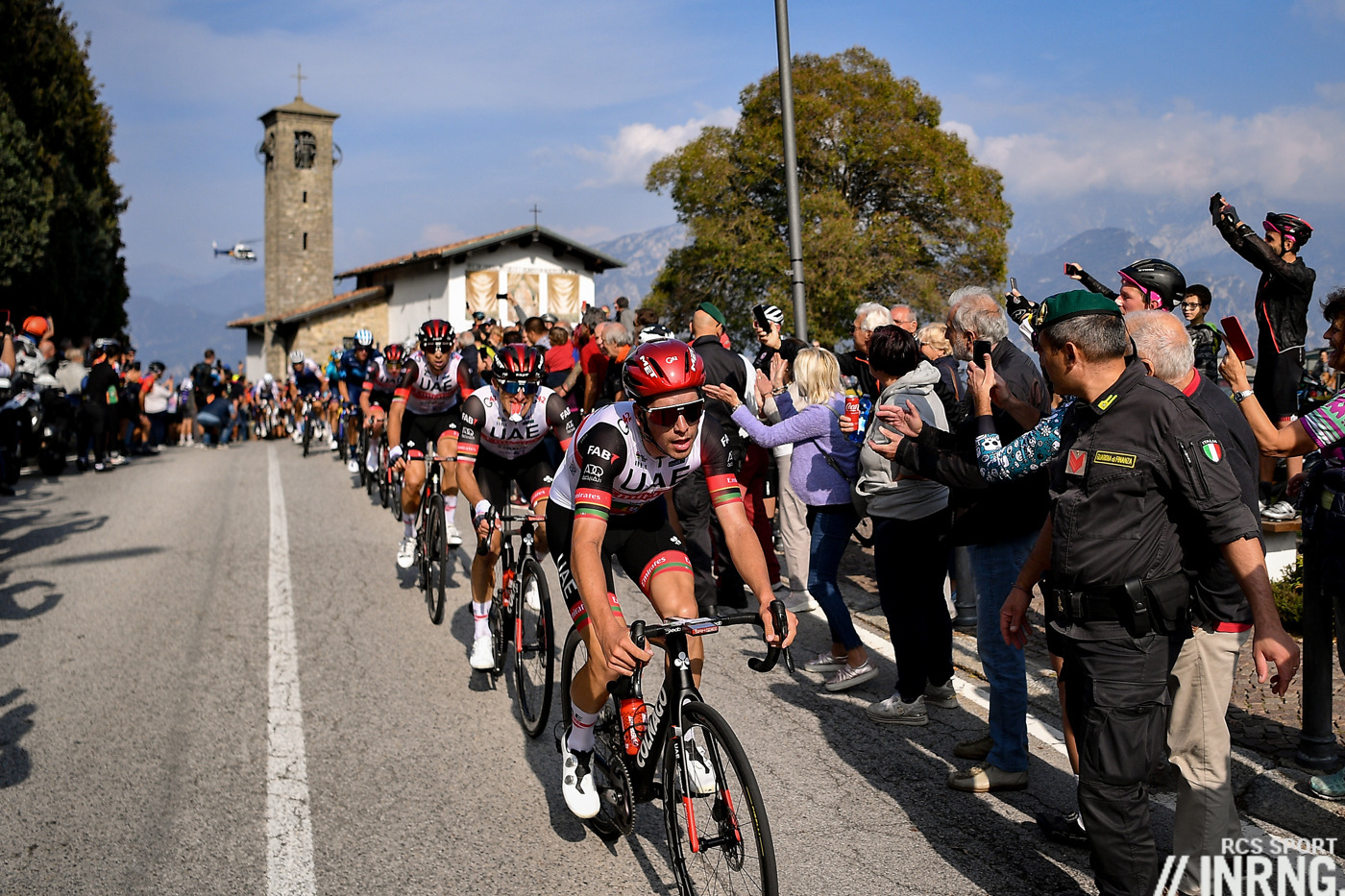
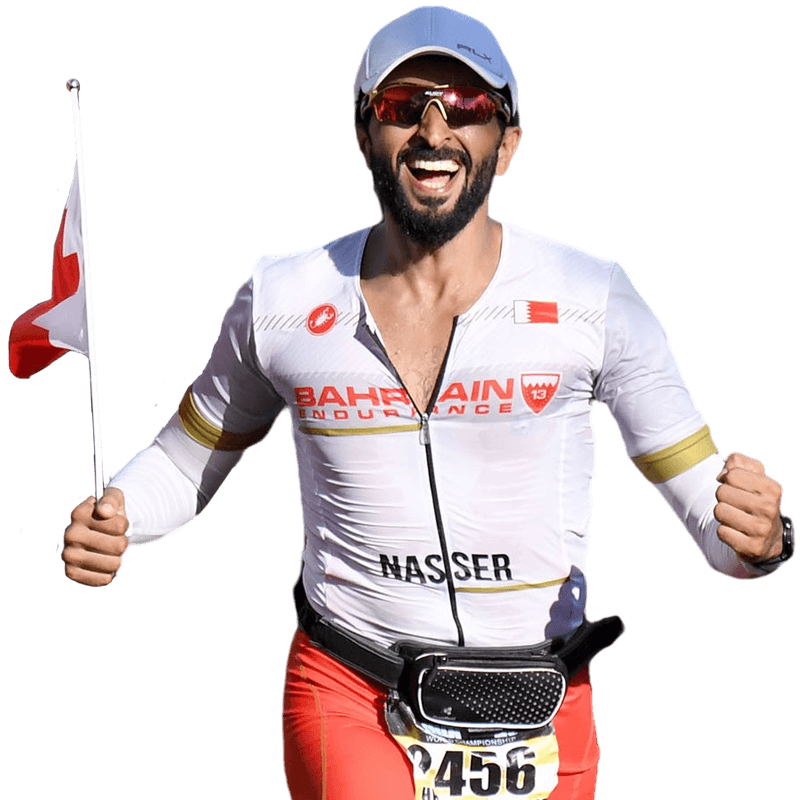
I feel like this list needs more Oleg Tinkov!
Cranking out the content this week. Many thanks. Keep up the great work!
Cycling seems to be more and more popular with the wealthiest people, is it an illusion ? Or maybe it has always been, but cycling was restricted to 5 or 6 countries in the past…
I think you’re right. Look at the time of Merckx and he was riding for a sausage maker, team sizes were 15 or less for riders and you’d add a few more for mechanics, masseurs, managers and admin. This week I heard Arkéa-Samsic have a staff of over 100 people, don’t remember exact number, 103 or 107 etc. We know Ineos are at €50 million a year, now Ineos don’t pay all of that in, others do but still, if you want in for five years that’s a lot of spending. I wouldn’t be surprised if when the day comes when Gerry Ryan stops funding the team he’s dropped $100 million on it.
Now go back just 20 years ago and arguably there was more commercial sponsorship, with Telekom, US Postal, Crédit Agricole, Rabobank, Saeco and other household brands and barely a millionaire/billionaire rich figure among them (see Andy Rihs with the nascent Phonak team, CCC’s Miłek) but many of these fled in the wake of doping scandals. Then in came states like Astana/Kazakhstan, we had the “Russian cycling project” in Katusha for a decade and more recently the Gulf states. As a rough rule these wealthy people or states can just pay more for cycling either because they love it as a hobby; or they just don’t have the same marketing metrics as a sausage maker/consumer company etc and so they outbid the companies looking for a publicity return.
Now things are more subtle and case-by-case from team to team and country/demographic/market etc but that’s the “blog comment reply” version.
“Now go back just 20 years ago and arguably there was more commercial sponsorship, with Telekom, US Postal, Crédit Agricole, Rabobank, Saeco and other household brands and barely a millionaire/billionaire rich figure among them”
Thom Weisel is sad that he’s “barely a rich figure” and can’t get namedropped 🙂
Sure, but I’d say by 2003 the team was funded thanks to US Postal’s money. But go back a few years before and his funding certainly helped the team get going.
I think I would have included Bernard Roger Tapie and his team in the list of rich millionaires who sponsored a professional team.
Maybe it’s linked to the change of demographic of cycling audience, from a poor countrymen’s sports to a more urban, richer and more educated people’s entertainment. In the english-speaking countries this is pretty remarkable for instance : it has never be a proletarian sport, it arrived directly in the middle-class or high middle-class level.
I disagree with your assertion that cycling has never been a proletarian sport in the English speaking world.
My father’s club was based at the local colliery as most of the members, including my father, were miners. Although he was primarily a tourer (riding from Sheffield to lands end and back both in 1947 and 1949,and Touring the Scottish Highlands in 1948 during the pit holidays) there was a whole calendar of grass track racing at the miners welfare sports as well as club time trialing. When I was growing up in the sixties our mining village even had a pro crit which passed our front door.
All the UK pros of the sixties through to the eighties seemed to be working class lads = Tom Simpson (Son of a miner, apprentice draughtsman), Barry hoban, vin denson, sid barras, malc elliot, Robert millar. Hell, beryl Burton used to pick rhubarb for a living. Sounds like the Irish, Kelly (son of a small farmer) Roche (son of a milkman) were just the same.
Read an account of what cycling was like in thosedays in the UK and you will appreciate that it was almost exclusively a working class sport.
+1 … in Australia my impression is that the roots of the sport are blue collar and rural. Things have changed a bit in recent times though with sports institutes and that kind of thing.
Where it has become trendy with the well off is mountain biking.
Agree wholeheartedly with this! My working class grandmother having worked from Raleigh from the latter stages of WWII. Sid Barras still an active rider in Yorkshire and fit enough to drop many a lad half his age. His son Tom Barras has established the Spatzwear cycling clothing brand who are now a kit sponsor for Alpecin–Deceuninck.
Apparently I don’t know so well the cycling history in the english-speaking countries then :). I was just under the impression that cycling arrived massively in US or UK in the 90’s and 2000’s, with Armstrong and Sky, and that it touched mainly the middle-class, but I underestimate the presence of cycling before that (of course I knew Simpson or Hoban but thought they were marginals who did their amateurs years in France for example). It seems to me yet that cycling did become more “popular” in these countries the XXIth century, and with the demographics I said, am I right ? And for Australia, sorry, I really don’t know anything about cycling there, except the riders…
Not everyone on the staff would be a (full-time) employee though. Doctors, nutritionists, cooks, VIP-drivers, physical therapists, sports psychologists (and even mechanics sometimes) would typically be contracted part-time while they also have a private practice/business or another job.
A good comment on team sizes in the early to mid seventies, yet, from rosters of hardly more than fifteen, teams were expected to to supply squads of ten fit, capable and keen riders for the three week GTs. Given illness and injury rates that must have been difficult at times, and is maybe reflected in the lower numbers of finishers. One top team (Brooklyn) would even see their star rider (De Vlaeminck) regularly ride the Giro while missing the TdF. Maybe the Italians were bigger potential consumers of chewing gum, or did Roger like to holiday with his family in July?.
Well, Brooklyn were an Italian team, and it was an Italian brand of chewing gum. Was it even sold outside of Italy?
I bought some on a school trip to Normandy in 1979. Cola flavour if I remember right. Pretty sure it was available in Holland and Germany too in the mid 80s, but my chewing days had passed!
And Brooklyn chewing gum was sold in Belgium too. So probably most of Western/Southern Europe?
I don’t remember Brooklyn in the Netherlands, but my memory would only go back to v early 80s – maybe it’s day had passed by then. Wrigley’s were advertising heavily then.
I think compared to other international sports you can own a cycling team for a pittance and you can also if you desire get more involved in the running of said team.
Of course the teams have got bigger but note it’s not a case of bigger teams requiring more money. It is a reflection that cycling is worth more and attracts more money. Hence there is more money to spend. The horse comes before the cart and all that.
Of all the people mentioned Gerry Ryan and the isreal team are the strangest sponsorship. The isreal team does not really promote anything. Gerry Ryan has business to promote but in australia where these businesses mainly reside cycling is a very small sport with hardly any eyeballs on his sponsor logo’s.
The middle east ones i sort of get because all these countries have been trying to promote tourism as a way to make up for the eventual lose of oil revenue.
Adams is promoting Israel.
Premier Tech are also a sponsor of Adam’s team.
I think Ryan is just a big cycling fan. Was a keen youngster, then invested in one of the young Aussie women, Kathy Watt, in 1992 to go to the Barcelona Olympics (she won gold). And it kept going from there. Sponsorship in the Herald Sun Tour, the Australian Institute of Sport and was the president of Cycling Australia for a bit.
The Middle East sponsors are white-washing their regimes, not trying to promote tourism.
Yes, and that includes Israel and Kazakhstan.
The billionaires interest seems to me to be due to a whole bunch of things that have now coalesced – the public push to get people off the couch and onto a saddle, for health and enviromental reasons, the raise of social media, the increased TV coverage (and shorter stages for complete TV coverage) and the UCI’s attempts to streamline the WorldTour. One could wonder about “sportswashing” and where this trend will end (like Europe’s soccer maybe with a few big name teams – who win the big events – and lots of minor/local teams).
Probably of no relevance to the article but I think Jayco is a US company … started in someone’s backyard. Can only assume that Ryan have some sort of licence agreement with them.
They have the same name and Gerry Ryan bought the name probably from the US company in the mid 70’s. i think that the last real connection they have. They are separate companies.
Caravans are pretty big in Australia compared to RV which are not as popular. Jayco used to have i think nearly 50 % of the market.
The two Jayco companies worked closely through the period that Jayco (USA) remained a family owned business, as the Ryan family and the Bontrager family were very close.
Jayco (USA) is now just a brand name of a megacorp, while Jayco remains independent and is now Australia’s largest vehicle manufacturer following the end of domestic production by Toyota, Ford and Holden.
Clears things up, thanks. It’s a small issue for the team if many don’t know what it’s promoting or if the brand means something else in a big market.
Not really an issue for the team when the owner views the situation as two two companies flying in formation and both benefitting from cross-exposure.
A surprising one, Murray Bolton – NZ Pro Tour team Black Spoke Bolton Equities. Murray has a phenomenal record in major NZ corporates and his own company -net worth $500m+
Good point, let’s add him to the list.
The prevalence of state money, soft power and dare I say it “sportswashing” is there to see in other global sports. So cycling is as much part of this trend as other, more popular pursuits.
Does it matter? Not sure, although cycling has always been a sport where the money dictates what the teams are called rather than the pretence that a team belongs to a town/city.
Just a thank you for this and the continuing excellence of this blog. It was the 2012 version of this article that brought me to this blog via Olie Williams’ now defunct Olympic links site. Keep up the good works and here’s to another 10 years of post as well as excellent contributions below the line
+++
Appreciated, thanks.
If I was a billionaire I’d buy a pro team and make them ride with me.
Push me!
Despite 50 million budgets, cycling is the cheapest sport you can get for your bucks:
A team that is in the top league of its sport, is being broadcast worldwide, is named whatever you like, and is part of one of the biggest and most well known sporting events in the world?
In any other sport this will cost you half a billion to buy and several hundereds a year to keep it afloat.
Cycling might not be as glamorous as F1 or watched en-masse as the Champions League or the NBA, but it’s a bargain.
On that same topic, I’m amazed that women’s cycling is always in financial troubles. I remember reading a recent article with Helen Wyman saying being the main sponsor of a women’s team costs 250k and a top team 500k!If this is true, there might not be many people who can anually cough up 50 million, but 500 thousand? Or even a million? Come on…
The price for women’s teams is rising fast, now that there are more races with increased TV coverage but it’s still cheaper than men’s cycling. But men’s cycling is cheap in some ways as you suggest. This is because it’s been risky, not long ago a sponsor could become infamous, to this day Festina can be associated with “affair” or “scandal”, not words a watch brand wants. A lot of sponsors fled in the wake of doping scandals and companies are still scared, any marketing manager pitching cycling sponsorship to their board is going to get told “isn’t golf/tennis/sailing safer?” but I think the tide is slowly turning here, some companies should be coming into the sport and maybe in 5-10 years will see more corporate stables and fewer princes/oligarchs/tycoons?
Are you comparing like for like? Cycling is not in the same ball park as F1 or football. Compare it, for example, with rugby. For a similar budget to FDJ or AG2R you could own a Top14 club and have change with the latter getting much more TV coverage than cycling.
The thing that always made me chuckle was watching Team Sky getting their TV channel sponsors hours of free PR on another TV channel. The genius was that in July there is only tennis as such to compete with cycling and cycling can be on now for hours and hours. Sky’s speciality then was soccer and of course there’s no soccer in July (normally). So for 3 weeks in July there’s hardly any competition as apposed to August until May when it’s a fight for eyeballs.
As for there being fewer princes/oligarchs/tycoons, I think the corporate world might well increase it’s interest, but cycling’s regular, shall we say, “medication problems” will always cause second thoughts in boardrooms.
…”much more TV coverage than cycling”? On an European scale, a global one, or just locally?
I don’t have watching figures at hand for rugby, but if somebody has, I’d be happy to compare them with cycling’s.
And I’d even dare to bet than across continental Europe fewer people could tell you *which* those top 14 rugby clubs even *are* than those able to identify a cycling-related brand. Of course, that might be different if you throw in the mix some well chosen Southern-emisphere countries, mostly though not exclusively English-speaking.
More generally, quite a lot depends on your target markets, both in terms of nationalities/States (because of broadcasting policies), sociocultural groups and specific objectives, too.
F1 was falling spectacularly the last time I checked (several seasons ago, admittedly) and was smaller than cycling in many relevant markets (it’s not only about numbers but also spending potential …and obviously your own penetration in that specific market in order to be able to sell, at least in perspective). Now I’m told it became much more interesting, so maybe it grew great again, surely not in some specific countries.
The Top 14 (French domestic league, so a reasonable comparator for FDJ or AG2R) gets about 3 million viewers for the finals, unclear what the regular weekly games get (I did seem 750k once, but can’t find it), but each team will have 26-30 games broadcast per season.
I suspect most French sport fans will be aware that Toulouse, Bordeaux, Montpelier, Toulon, etc., have teams, although the fan base is pretty regional – most top flight teams are in the southwest.
Looking at shirt/competition sponsors as a proxy, the league is sponsored by Societe General, Orange and Tissot; teams’ main jersey sponsors include Total, Arkea, a lot of insurance companies, with Toulouse stepping up to Peugeot and Airbus.
Imagine that I thought it was a UK thing ^__^… in Spain rugby is totally niche, in Italy there’s some more interest but it won’t get as far as knowing about other countries, it’s about a couple of teams of the national league and the national selection.
Spain and Italy alone sum up some 100 M of general population in Europe. We’d need some info about Germany to have a broader picture.
In Italy, rugby’s all-time record event in viewing figures happened back in 2009 when it nearly hit the 1 M mark (Italy-England, 1st day of the 6N). A flat first-week Giro stage or so. When rugby was broadcast on public national TV, it could score figures around the 500 K mark, during the first 2010s. Now it sits at some 250 K.
In France it’s indeed impressive, the 6N can bring more viewers than the TDF! No surprise it can get huge sponsorship. Although, as I said, much depends on what market you want to impact into.
In Germany nobody cares about Rugby. Some nerds might know they play Rugby in France. Some might have seen some Rugby sometimes on Eurosport. But it’s total niche.
Not really a surprise when they get beaten 75-12 by Georgia! The point about rugby is the demographic is very similar to cycling and if it is a company advertising within a country or territory (without international ambitions) rugby offers a cheaper alternative. Typical total weekend viewing figures for the Top14 are about 3 mio. (though there will be double counting) which probably compares favourably with a single day of the Tour.
But there is also the fact that for the normal non-specialist user you know the name of the sponsor of the cycling team if you know the team. I don’t watch a lot of rugby, I know the clubs but I wouldn’t really know who is the sponsor of le Stade Toulousain, Clermont (well I can imagine it’s Michelin) or Toulon. I think I know the main sponsor of the national team but just because of all the dirty affairs around (Altrad)… Of course, non-specialist occasional viewers of cycling don’t know all the teams, maybe 5 or 6 (maybe more in July), but they know the sponsors… And the name stands (my brother still speaks about Sky or Rabobank when he wants to refer to Ineos or Jumbo…)
And yes, rugby is a 6-countries sport (I didn’t include Italy, even if they seem to have a pretty decent team right now and it could become more popular there again, nor the small Pacific islands because I think they’re not very relevant for a world-level sponsor).
Looking at things it seems French rugby clubs have similar budgets to pro cycling teams but probably a lot less reach; even in France the game is limited to some geographic areas.
Cycling sponsorship is so varied though, one sponsorship deal can be about VIP encounters and marketing for a corporate backer, another can be someone playing fantasy cycling for real, others can be hoping to sell and brand their products, it some cases it can be all three at the same time, and a mix of other factors. It’s very different from team to team, country to country, audience demographics etc.
Good read.
BTW if you have Prince Nasser and “TbZ”, what about the Saudis and “MBS” behind Jayco-Al Ula and the Saudi Tour as well?
The Saudi regime is getting into cycling, and we might see more with Movistar. But is MBS (Mohammed bin Salman Al Saud, the Saudi prince and recently promoted Prime Minister for others) really behind the sponsorship? He seems a step away from all of this. Just as I left out the Kazakh authorities because there’s no one politician/ruler really behind the team these days, it seems the same with MBS.
By contrast you can spot TBZ in team kit – pictured – several times over, he’s bought Colnago, and Sheikh Nasser’s been at the Giro etc. The two of them surely meet often and can probably talk about cycling, am not sure MBS could join in the conversation? The day MBS is spotted in Jayco kit / riding a Giant / at the Tour he’ll go straight on the list.
“I left out the Kazakh authorities because there’s no one politician/ruler really behind the team these days”
The main money guy behind the team is Nurlan Smagulov — president of Astana Group that makes cars and owns shopping malls:
http://www.astana-group.kz/eng/management
Smagulov is also the Head of the Kazakhstan Cycling Federation, but try finding a picture of him in the team kit! (Well, you can find one or two…)
I have no idea whether it is his personal passion for cycling that was the primus motor or whether without him there would no longer be a WorldTeam. It might well be that his interest in cycling was born the day when the decision to sponsor a pro team was made at government or perhaps more likely at the very hghest level and he and his company were led to understand it would be a very good idea to hop aboard.
Is it wrong for me wish that perhaps Elon Musk might sponsor a WT team?
Just to liven things up, think of the press and promotion it would get.
Of course, we all want to see a rider fired by tweet of a narcissist stoner mid-race. Not.
As I noted some time ago, Italy had a real world-level superrich sponsoring cycling in Ferrero. However, they sponsored the Giro rather than a team, which is an interesting point because it shows how the races themselves can be an actual “competitor” for sponsorship money, partly driving it away from potential teams. Italian Enel is a very big international company and it chose to sponsor the Giro rather than an Italian team as the likes of TotalEnergies, Citroën or INEOS did. ENI is also a big thing and it sponsors… the Vuelta!
Same can be said for the bank sector in Mediolanum, or automotive as in obviously FIAT which is also opting to sponsor the Giro although with a less obvious yet quite well chosen brand in New Holland.
Generali Assicurazioni is another big Italian based global company (insurance) with a clear interest in cyling. They used to sponsor an U23 team (another issue for Italy, its local U23 world was relevant enough to become self-referential, draining sponsorships and priorising U23 victories against against long term development of the riders and the whole movement… but this is another story for another day), now they put their pedalling money into events like DJ100 in Milan.
Add to that mass start events (granfondo), where important brands like Rio Mare or Amadori put their sponsorship money, which instead would be a perfect addition for a cycling team of sort (I can imagine great jerseys… and the Chicken Rasmussen… or the Shark Nibali as DS :-P)
New Holland has also been a race sponsor in cyclocross for several years (probably also in part because one of their major factories is here in Belgium).
And several sponsors in Belgium sponsor both races & teams (e.g. Soudal, Lidl, Balloise, Lotto, …).
Indeed, but although cycling is far from being niche in Italy, as in that it is a decently big thing, well, in Belgium it’s got a whole different magnitude. However, double sponsorship (team / race) still happens in Italy, albeit nit very frequent, and mainly as a way to get invites (Eolo now, Novo Nordisk some years ago…).